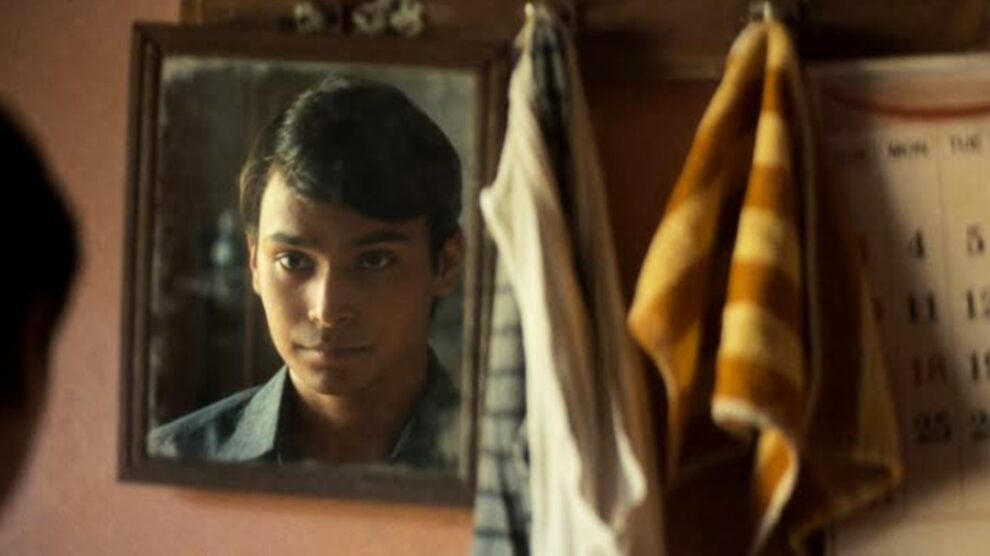It's challenging making a film about a young adolescent's coming-of-age tale submitting to being made into a conformist in a country like India. Not because it isn't an ideal backdrop to tell the story, but because there's already been well established and acclaimed shows/ films churned out of the similar struggle of persistence across the Indian diaspora. But Varun Grover is no ordinary writer, and with his latest – “All India Rank” – the artist now turns his eye into the directorial realm.
All India Rank is screening at International Film Festival Rotterdam

There have been quite a few distinctive lyricists in India through the decades, most of whom have fruitfully shaped the course of Bollywood – the world's largest film industry. Grover is also a scriptwriter, a comedian and now a director along with being a National Film Award winner for his lyrics. Across his wide catalog of work, there's a deeply inherent lyrical aspect to even his screenwriting process, which organically roots the stories into the dynamic culture of India. With his debut feature film, the artist chooses to tell a fairly conventional on-paper-story, yet it's the grace with which he decides to tell it that makes it a must see. The movie, which premiered at IFFR 2023, tells the story of Vivek (Bodhisattva Sharma), a 17 year old boy coming on terms with his adolescence, yet still blissfully ignorant of the inevitable socioeconomic fate of his lower-middle class parents. Not being immune to the aspirations of any such family, his father (Shashi Bhushan) enrolls him into coaching classes for the notoriously competitive entrance exams of the Indian Institutes of Technology (IITs).
Vivek's father – a man yet oblivious of stepping out of the conflated notions that the society tends to associate with academic backgrounds – sees an IIT degree as a moral certificate. Thus, he not only ships his only son off to a residential preparatory school in Kota – known as the Mecca for coaching – but also vicariously imposes his own shortcomings onto the young boy. It's over the course of these two years when Vivek goes through the motions of Indian adolescence.
It becomes almost impossible to watch Grover's latest without comparing it with another coming of age tale that came out more than a decade ago – Vikramaditya Motwane's extraordinary humanist drama, “Udaan”. That film too was a debut feature that set a new benchmark for films in Bollywood. Motwane has been a collaborator and a good friend of Grover, but the latter's strength remains in having a distinctive writer's voice that never waters down his filmmaking approach – a testament to his body of work that so far has consistently delivered upon echoing issues that remain at the heart of the Indian conscience.
While Motwane's film was about creativity and individual expression being at war with socially orthodox obligations, “All India Rank” finds its footing in successfully echoing the struggles of the Indian middle class during a time when the country was nascent at embracing the wave of liberalization.
The film is deeply rooted in the Indian pop culture of the 1990s. By doing so, Grover, who himself is an IIT-BHU alumni (Varanasi, Uttar Pradesh), paints a poignantly semi-autobiographical story that is told with enough elegance to move its present day viewers. The script is consistently engaging, smart and even bittersweet in its outlook, as the filmmaker looks inward in a self reflexive manner while coherently reflecting the national hallucination of the 90s. For instance, at a point in the film, Vivek's father asks him to prepare as ‘humanly as possible' for the competitive exam, over an STD phone call. In an extensive montage sequence that follows, we see the young boy take his father's words at heart, studying religiously until he's eventually interrupted by a power cut; how do you compete against the caprices of a country that's still figuring out where it stands in the global order, when it does so at the cost of the dreams of its youth?
In another scene that comes much later, we see Vivek talk over a call with his mother (Geeta Agrawal Sharma). The latter is startled by an event midway through the conversation, in a distressing scene where we see a young boy break their home's living room glass window. We watch the mother peep outside through the dented mirror, her socially conditioned worldwide view now shattered, as we cut back to Vivek being consistently framed through a smutted mirror back at his hostel, covered in fog, reinforcing his dwindled state. Thus, even while adroitly epitomizing teenage angst of its protagonist at every step of its way, “All India Rank” never deviates from the evolution of his parents back home; it's eventually the two of them who do the growing up, in the face of the shifting social dynamics and desires of a new generation. Desires that during the India of their times had long been kept dormant.
Grover's characteristically acerbic poignancy and eloquence remains in his acknowledgement of how the struggles of these two generations cannot be mutually exclusive; it's in his synthesis of this rooted approach where the movie exemplifies the intricate dynamics and minimalist desires of the people of India. One of the sweetest moments in the film is shared between Vivek and his first crush, as the two sit for a peaceful conversation at a public place: a railway station where the two sit after getting chilled cold drinks. Vivek tells her about how he would often come to the station to watch the train to his hometown leave, something that would motivate him enough to stay back every time. It's the simpler moments like these that make the film work so well. The strength and the ultimate salvation of the two characters remains in how they're not just dreamers. You know they would just turn out to be alright. But somewhere, just like the newly accessible cold drinks in their hands, there's a lingering feeling of watching their crucial years dwindle off in an instant. The movie, however, works because it trusts in the humanist permanence more than the temporary motions that impose around us.
















